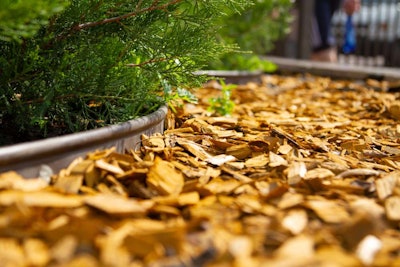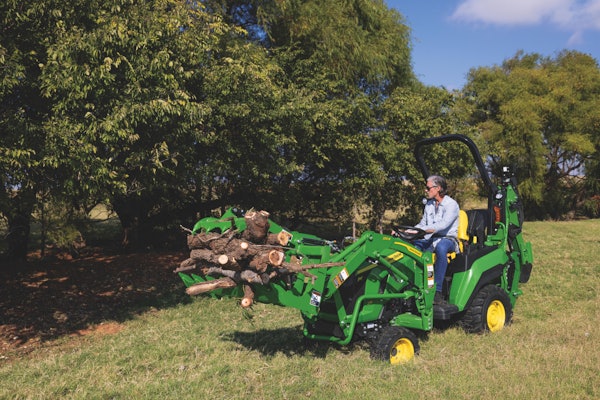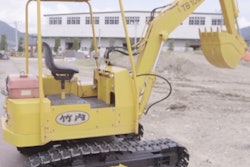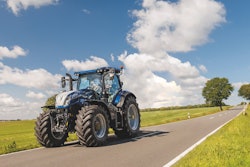
Brushcutting is one aspect of site preparation, but not everyone does it. Some landscapers offer only chipping and shredding services, while others contract out all phases of site clearing. Then there are companies who do brushcutting, but they stick to smaller jobs that may only require a mower, trimmer or chainsaw.
There are several advantages to adding brushcutting to your portfolio and certain benefits for using actual brushcutters or brushcutting attachments. Perhaps it’s time you got in on the action.
Better for the environment
By using equipment or attachments with a mulching head, landscapers can save labor and fees by avoiding hauling away or burning cut materials.
“The size of the finished product is the advantage,” says Tom Madden, sales director for RockHound Attachments. “It becomes mulch and can stay on the jobsite by being raked in.”
Brushcutting attachments with cutter heads also create mulch. John Tucker, director of marketing media for Gyro-Trac, says cutter heads will create finer mulch in comparison to hammer teeth, which eat the wood into strips and require more horsepower. Fine mulch also biodegrades faster than wood strips and it is more aesthetically pleasing.
“If you mulch a tree, you want the end result to look better than what you started with,” Tucker says.
Another advantage to using a brushcutter over a mower or trimmer is the speed in which you can clear material and the size of material that can be removed.
Fitting into your fleet
When making any big purchase, landscapers should evaluate their current fleet. Choosing a dedicated brushcutter or an attachment is no different.
Madden says the biggest thing to consider is the horsepower. Do you already have a machine with the horsepower needed to support an attachment, or will you need to buy a self-propelled piece of equipment? He also says to think of your customers and the size of material they will need cut. Thicker material will need increased horsepower to process.
Safety is another factor to consider. “A brushcutter is probably the most dangerous attachment a landscaper uses,” Madden says. He advises researching the manufacturer to find a reliable, well-insured company.
“Not only does the operator need to be safe,” he says, “but bystanders, others’ property and even livestock should be thought of as well.”
Madden also suggests finding equipment that can be serviced locally and still have resale value at the end.
Ground disturbance permits can be another issue to look at when checking into brushcutters. Tucker says several localities won’t allow tractors to drive into urban areas as they may destroy pavement. For this reason, landscapers may need to consider purchasing equipment with lower ground pressure if they want to avoid the permit process.
Finally, brushcutting can help landscapers generate business in the offseason.
“The nice thing about brushcutting is it’s a year-round way to generate revenue,” Madden says. “But it’s better to do it in the winter when leaves are off trees or vegetation so you have increased visibility.”







